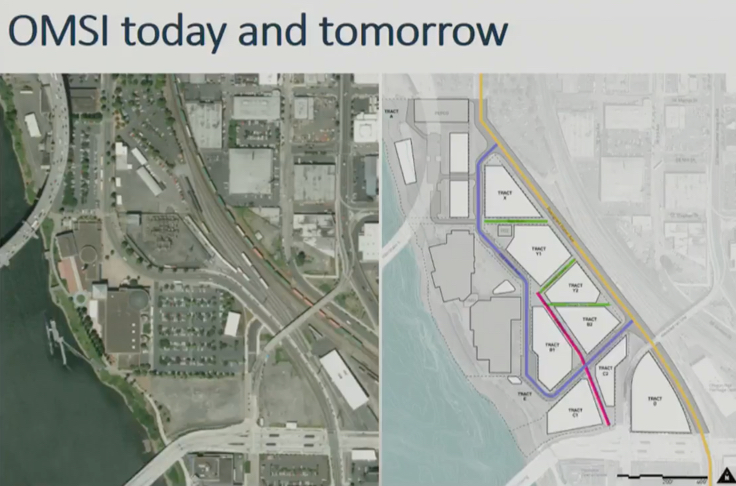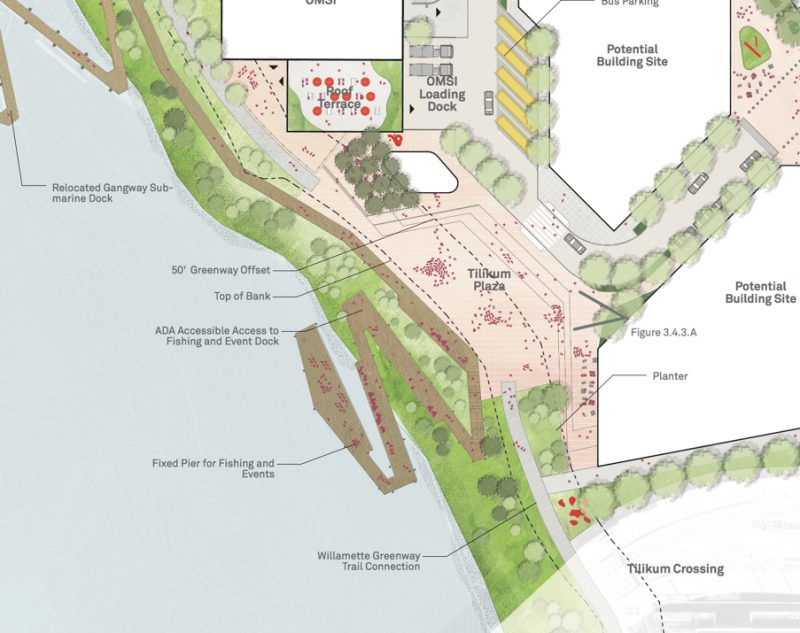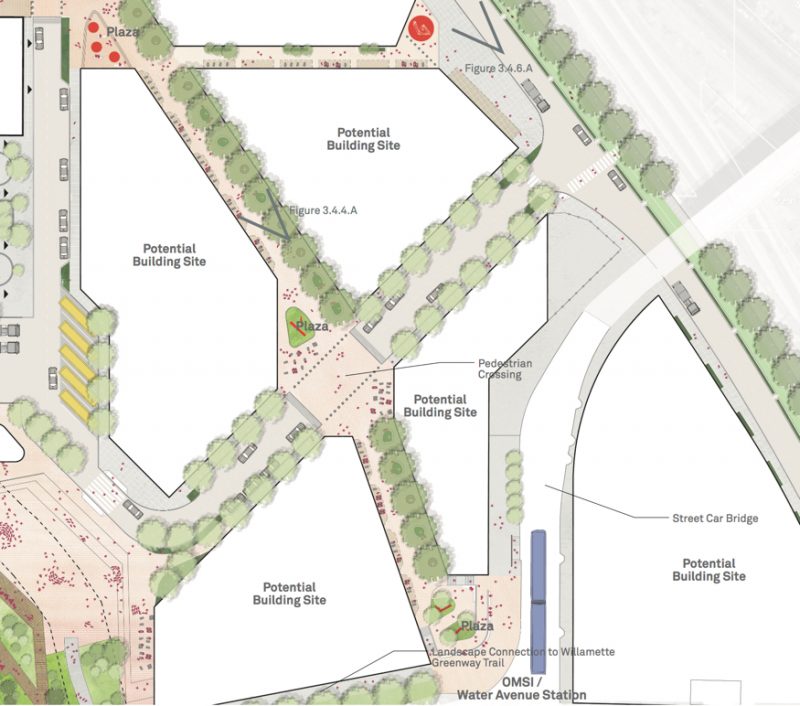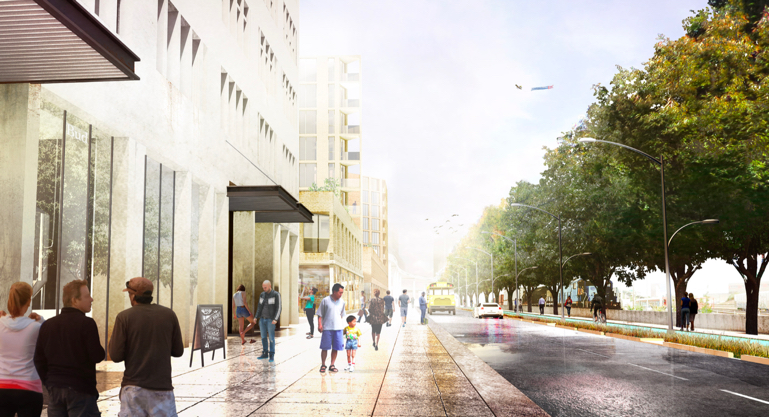
The Oregon Museum of Science and Industry is located in a prime location transportation-wise. It sits at the confluence of the Eastbank Esplanade path, the carfree Tilikum Bridge, a streetcar and MAX station, and there’s even a submarine dock and a major railroad line nearby!
When their latest plans come together it’ll be even more impressive.
Last week Portland City Council moved the “Water Avenue Realignment Phase II” project into the Transportation System Plan as part of the Central City 2035 Plan update. Water Avenue currently makes a big “s” through OMSI’s property — which stretches west of Water to the Willamette River and from Market Avenue in the north to the Tillikum Bridge in the south. According to their new Master Plan (you can download it here), OMSI wants to straighten out that s-curve so Water Avenue runs adjacent to the railroad line. This would allow OMSI to create higher quality, people-centered spaces, plazas, and smaller “green streets” in the interior of their campus as new buildings are constructed in the future (see renderings below).
Here’s the vision for what OMSI calls “Tilikum Plaza”:
And another look at the future of the southern part of the campus that shows tighter integration with the existing streetcar stop:
Advertisement
On the new Water Avenue, OMSI envisions a two-way, 14-foot wide bikeway separated from motor vehicles by a four-foot wide, planted stormwater bioswale.
Here’s the cross-section:
And this is an artist rendering that shows the bikeway (on the right):
Here’s more from the plan:
“The design of New Water Avenue creates rich opportunities for the intersection of disparate uses and experiences. Occupant oriented ground floor uses promote activity on the street level, while generous pedestrian sidewalks and covered walkways on the west side invite passers-by to engage and interact with ground oor occupants. Rolled curbs allow for easy, informal loading while large, rolling garage doors allow for production to spill out onto the sidewalk, contributing to the spectacle of street life.
Though Water Avenue serves as the primary thoroughfare for freight, the design also emphasizes bicycle circulation through the inclusion of a designated two-way cycle track. A vegetated strip traveling the whole length of the avenue serves as a buffer between vehicles and cyclists and while also collecting stormwater.”
In the “Circulation System: Bikes” section of the plan, OMSI says the new bikeway will “serve as the primary bikeway through the OMSI Master Plan area,” and “will provide for convenient and comfortable bicycle travel between the Clay Street and Tilikum crossing traffic signals.”
But that’s not all. OMSI isn’t trying to discourage bicycle traffic from its inner campus or from the existing path along the river. They’ve proposed upgrades to the Esplanade path, “to allow for greater separation of pedestrians and bikes with the minimization of conflict points.” The riverfront path adjacent to OMSI has seen its share of conflicts. Two years ago the museum put up signs encouraging “fast bikes” to use bike lanes on Water Avenue. According to City of Portland counts, about 2,800 bicycle riders pass the OMSI campus via the Esplanade and 1,600 use Water Avenue on an average day.
Part of OMSI’s motivation to improve bicycling conditions is to encourage more people to ride to the museum. According to findings presented in their master plan, if current modal shares (how people get to the museum) stay the same, OMSI would need to add 152 auto parking spaces (or 790 total) to prevent their existing lots from filling up. “However, given the accessibility to transit and bike infrastructure,” states the plan, “OMSI will likely see a higher utilization of these modes by guests and a lower parking demand in the future… should OMSI increase the museum guest walking, biking or transit mode share by five percent, the peak parking demand could be reduced by about 25 cars per day.”
— Jonathan Maus: (503) 706-8804, @jonathan_maus on Twitter and jonathan@bikeportland.org
Never miss a story. Sign-up for the daily BP Headlines email.
BikePortland needs your support.






